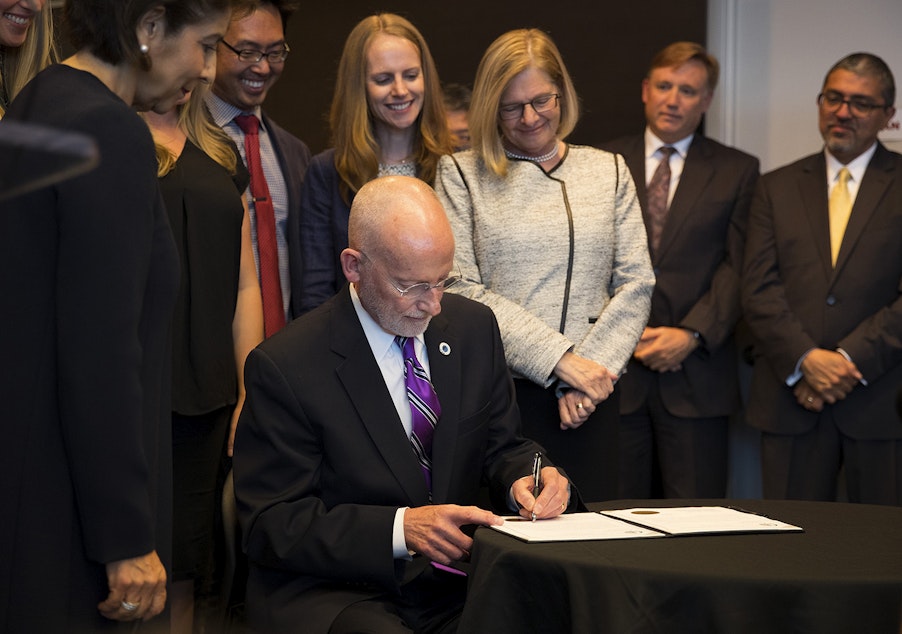New mayor wants Seattle PD to have more control over off-duty cops

The Seattle Police Department will take over regulation and management of off-duty work performed by officers under a new executive order from Seattle mayor Tim Burgess.
The order, signed Monday, directs SPD to set up an internal work group run by civilians to oversee outside work.
The order would not stop officers from taking off-duty jobs at places like parking garages and construction sites but it would end the management of that work by private companies.
Burgess said Monday his order is in line with national best practices and would allow better transparency.
He said officers currently have to get a permit from the department to work extra hours at other jobs but the department doesn’t have a way to accurately track how many hours they’re working, mitigate conflicts of interest, or ensure there are no inequities between officers competing for outside work opportunities.
Sponsored
"Police officers working off-duty are using their commissions as police officers, using their powers of arrest, wearing their uniform, wearing their badge," Burgess said. "The city has a direct interest in the work that they do 24/7, including when they're working off-duty for others."
The executive order also creates a task force to develop recommendations on implementing the reforms. Burgess said he’ll get those recommendations by November 14, at which point he’ll take executive action to begin the transition to a new system for managing secondary employment.
His order comes as the FBI is investigating allegations of intimidation and price-fixing in off-duty work. As reported by the Seattle Times, the allegations come from a company that uses off-duty officers for tasks like security and directing traffic, and says they were blackballed by the police union.
Management of off-duty work has been a long-standing issue for SPD. Burgess’ executive order states that SPD officials and former Office of Police Accountability auditors have recommended reforms to secondary employment practices since the early 2000s.
Burgess, a former Seattle police officer and long-time council member, said the time for ignoring these issues is over.
Sponsored
When asked why nothing had been done in the past, Burgess replied, “It should have happened earlier and as a council member maybe I should have done more. But I wasn’t mayor then, and I am now and we’re acting.”
This is the first executive order Burgess has signed since rising to the office of mayor last week in the wake of Ed Murray’s resignation over child sexual abuse allegations.
Burgess said Monday that he planned to take action before leaving office when election results are certified at the end of November. In a statement, he said it’s anticipated that the new regulations will take effect in 2018.
Burgess may only have 71 days in the mayor’s office, but he’s set himself up for a fight during that tenure.
The Seattle Police Officers’ Guild released a statement Monday saying they would take legal action.
Sponsored
“Why the need for another Executive Order? If there are changes sought by the City, why can’t those changes be accomplished at the bargaining table? This is yet another example of the City violating the Collective Bargaining Agreement (CBA) and State Labor Law. SPOG ALWAYS follows the CBA and State Labor Law!!
SPOG will be taking legal action on this order. Not to oppose the changes, but to demand that the City stop circumventing State Law.”
In a statement, Police Chief Kathleen O’Toole said she applauds Burgess’ order.
“We will continue to engage collaboratively, and with a sense of urgency, to develop and implement a modern system for the management of secondary employment that promotes accountability, efficiency, and transparency.”
